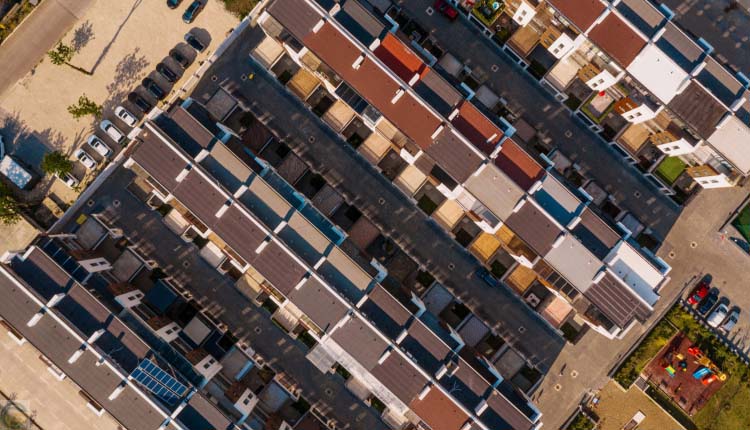California Facing Housing Shortage: What It Means for Homebuyers and Homeowners in 2024
California has long been a dream destination for millions. Still, it has become a battleground for housing affordability in recent years. The California housing shortage is one of the most pressing issues facing the Golden State. If you’re looking to buy your first house, refinance a current mortgage, or invest in property, grasping the factors of this crisis can aid you in making educated choices.
In this blog post, we’ll explore why California faces a housing shortage in 2024, how it impacts homebuyers and homeowners, and how you can navigate this challenging market. We’ll also discuss potential solutions and strategies to achieve your dream of homeownership despite the hurdles.
California Facing Housing Shortage: The Culprit
The housing shortage in California stems from a combination of factors that have compounded over decades. From high construction costs to regulatory hurdles, here’s what’s driving the crisis:
1. Skyrocketing Demand Meets Low Inventory
California’s desirable climate, booming tech industry, and cultural appeal have made it a magnet for millions. However, this popularity has created intense competition for housing. The California Department of Housing and Community Development states that the state requires 180,000 new housing units yearly to meet demand. Regrettably, only 80,000 units are constructed annually.
This disparity has increased home prices and rents, making it more challenging for numerous Californians to secure affordable housing.
2. High Cost of Building
Building a home in California is significantly more expensive than in other states. Why?
- Labor Costs: Workers in California earn higher wages to keep up with the state’s high cost of living.
- Material Costs: Inflation has driven up the price of construction materials nationwide, but California sees even steeper increases due to transportation and environmental regulations.
- Land Prices: Buildable land near major cities is scarce, and the cost of purchasing it is among the highest in the nation.
These elements create difficulties for developers in constructing affordable housing, further intensifying the existing shortage.
3. Environmental Regulations
California’s strict environmental laws, such as the California Environmental Quality Act (CEQA), require extensive reviews before any housing project can begin. While these regulations aim to protect the environment, they delay construction and increase costs. Some projects take years to get approved, discouraging developers from building in the state.
4. Red Tape and Zoning Laws
Lengthy permitting processes and restrictive zoning laws also contribute to the housing shortage. For instance, many cities in California limit high-density housing developments, making it harder to meet the growing demand for affordable homes.
5. Migration Trends
California is experiencing a dual trend:
- Out-Migration: High housing costs, coupled with rising taxes and a higher cost of living, are driving many Californians to more affordable states like Texas, Arizona, and Nevada.
- In-Migration: At the same time, immigrants and professionals from other countries are moving to California, attracted by its robust economy and job opportunities.
This population churn adds complexity to the housing market.
Get Pre-Approved for a Mortgage in California
Apply Now And Get recommendations From Loan Experts
The Impact of California’s Housing Shortage
The housing shortage affects everyone, from first-time homebuyers to long-time homeowners. Here’s how:
- Rising Home Prices: The median home price in California is over $700,000—more than double the national average. Cities like San Francisco, Los Angeles, and San Diego have even higher price tags, often pushing middle-income families out of the market.
- Higher Rents: The shortage translates into skyrocketing rent prices for renters. Many families spend over 50% of their income on housing, leaving little for savings or other expenses.
- Overcrowding and Homelessness: With limited affordable housing options, overcrowding has become common in California homes. The state also has the highest homeless population in the country, with over 170,000 individuals experiencing homelessness on any given night.
Is Buying a House in California Still a Good Investment?
Despite the challenges, California remains a prime real estate market. Here’s why buying a home in the state could still be a smart move:
- Long-Term Appreciation: California’s housing market has historically shown strong price appreciation, making it a solid investment for the future.
- Economic Opportunities: California has the fifth-largest economy in the world and offers diverse job opportunities that can support long-term homeownership.
- Low Inventory Creates Stability: While limited inventory makes buying harder, it also helps protect home values from drastic declines.
Nonetheless, timing plays a crucial role. Collaborating with an experienced mortgage broker can help you maneuver through the market and obtain the most favorable deal for your circumstances.
Solutions to California’s Housing Shortage
While there’s no quick fix, several strategies could help alleviate the housing crisis:
1. Streamlining Permitting Processes
Shortening the time it takes to approve housing projects could encourage more developers to build in California. Simplifying environmental reviews while maintaining accountability is a key step.
2. Promoting High-Density Housing
Relaxing zoning laws to allow for more multi-family housing units near city centers can increase supply and reduce housing costs.
3. Incentivizing Affordable Housing
Incentives and financial assistance for builders who construct affordable housing can assist in meeting the requirements of families with low and moderate incomes.
4. Public-Private Partnerships
Partnerships between government bodies and private developers can result in creative solutions, like constructing mixed-income housing projects.
Tips for Homebuyers Facing California’s Housing Shortage
If you’re a prospective homebuyer, navigating California’s competitive housing market requires strategy and preparation. Here are some tips to increase your chances of success:
- Get Pre-Approved for a Mortgage: Getting pre-approved demonstrates to sellers that you are a committed buyer, which can give you an advantage in competitive bidding scenarios.
- Work with a Local Real Estate Agent: A knowledgeable agent can help you identify opportunities and negotiate the best deal in a tight market.
- Consider Expanding Your Search: While homes in major cities are often out of reach, exploring suburbs or smaller towns could reveal more affordable options.
- Explore Low-Down-Payment Loans: Loans supported by the government, such as FHA and VA loans, enable you to buy a home with a reduced down payment. Consult your mortgage broker to determine your eligibility.
Take First Step Toward Making Your Dream A Reality
Apply Now And Get recommendations From Loan Experts
Is Refinancing an Option for California Homeowners?
If you already own a home in California, now could be an excellent time to refinance. While mortgage rates have fluctuated, they remain historically low compared to decades past. Refinancing can help you:
- Lower your monthly payments
- Consolidate debt
- Access cash for home improvements
Talk to a trusted mortgage broker to explore your refinancing options and maximize your savings.
The Bottom Line: Turning Challenges into Opportunities
The California housing shortage is undoubtedly a complex issue with no easy solutions. However, that doesn’t mean homeownership is out of reach. With proper guidance, preparation, and tactics, you can overcome obstacles and turn the dream of owning a home in California into a reality.
Whether you aim to purchase, refinance, or invest, collaborating with a knowledgeable mortgage broker can assist you in discovering the optimal solutions tailored to your specific requirements. Don’t let the housing shortage hold you back—take the first step toward your dream home today.
Contact Us
Ready to explore your options? Call or text the Gustan Cho Associates team at 800-900-8569 or email us at alex@gustancho.com for expert advice and personalized mortgage solutions. Let’s turn the California housing crisis into your opportunity for homeownership.
Frequently Asked Questions About California Facing Housing Shortage:
Q: Why is California Facing a Housing Shortage?
A: California’s housing shortage stems from many factors, including high construction costs, strict environmental regulations, and limited buildable land. These challenges make it hard for developers to meet the growing demand for housing.
Q: How Does the California Housing Shortage Affect Home Prices?
A: The lack of available homes boosts demand, leading to a rise in home prices. In California, the median home price exceeds $700,000, more than twice the national average, making it hard for numerous families to purchase a house.
Q: What is Being Done to Address the California Housing Shortage?
A: Solutions include streamlining permitting processes, relaxing zoning laws for high-density housing, incentivizing affordable housing development, and forming public-private partnerships to increase housing supply.
Q: Can I Still Buy a Home in California Despite the Housing Shortage?
A: Indeed, purchasing a home in California remains achievable. Although competition is fierce, obtaining pre-approval for a mortgage, collaborating with a knowledgeable real estate agent, and considering low-down-payment loan alternatives such as FHA or VA loans can enhance your prospects.
Q: Is California Facing a Housing Shortage Only in Big Cities?
A: No, the housing shortage affects both major cities and surrounding areas. However, due to higher demand and limited space, the impact is often more severe in urban centers like Los Angeles, San Francisco, and San Diego.
Q: Why are Rents so High in California?
A: The California housing shortage also impacts rental markets. With fewer housing units available, demand for rentals increases, increasing prices. Many renters now spend over 50% of their income on housing.
Q: Is it a good time to refinance my home in California?
A: If you currently own a home, refinancing might help you reduce your monthly payments or obtain funds for upgrades. Despite the variations in rates, refinancing continues to be a wise choice for numerous homeowners dealing with the housing shortage in California.
Q: How do Environmental Laws Contribute to the Housing Shortage?
A: Strict regulations, like the California Environmental Quality Act (CEQA), require developers to go through lengthy review processes before starting projects. This delays construction and increases costs, discouraging new developments.
Q: Are People Leaving California Because of the Housing Shortage?
A: Many Californians are moving to states with lower housing costs and more affordable living, such as Texas, Arizona, and Nevada. However, California still attracts immigrants and professionals seeking job opportunities.
Q: What Can I do to Navigate the California Housing Shortage as a Homebuyer?
A: To navigate the competitive market, get pre-approved for a mortgage, expand your home search to include suburbs or smaller towns, and explore government-backed loan options. Working with a local expert can also give you an advantage.
This blog about “California Facing Housing Shortage In 2023 Going Into 2024” was updated on November 21st, 2024.










An excellent article. Thank you. I have read that the supply of housing units in California is 3-4 million housing units behind demand. If that is true, how many years will it take to catch up?
Housing will always be behind in catching up with the housing shortage. Due to limited buildable land and more or a reason is due to the tough regulations, environmental codes, and zoning.